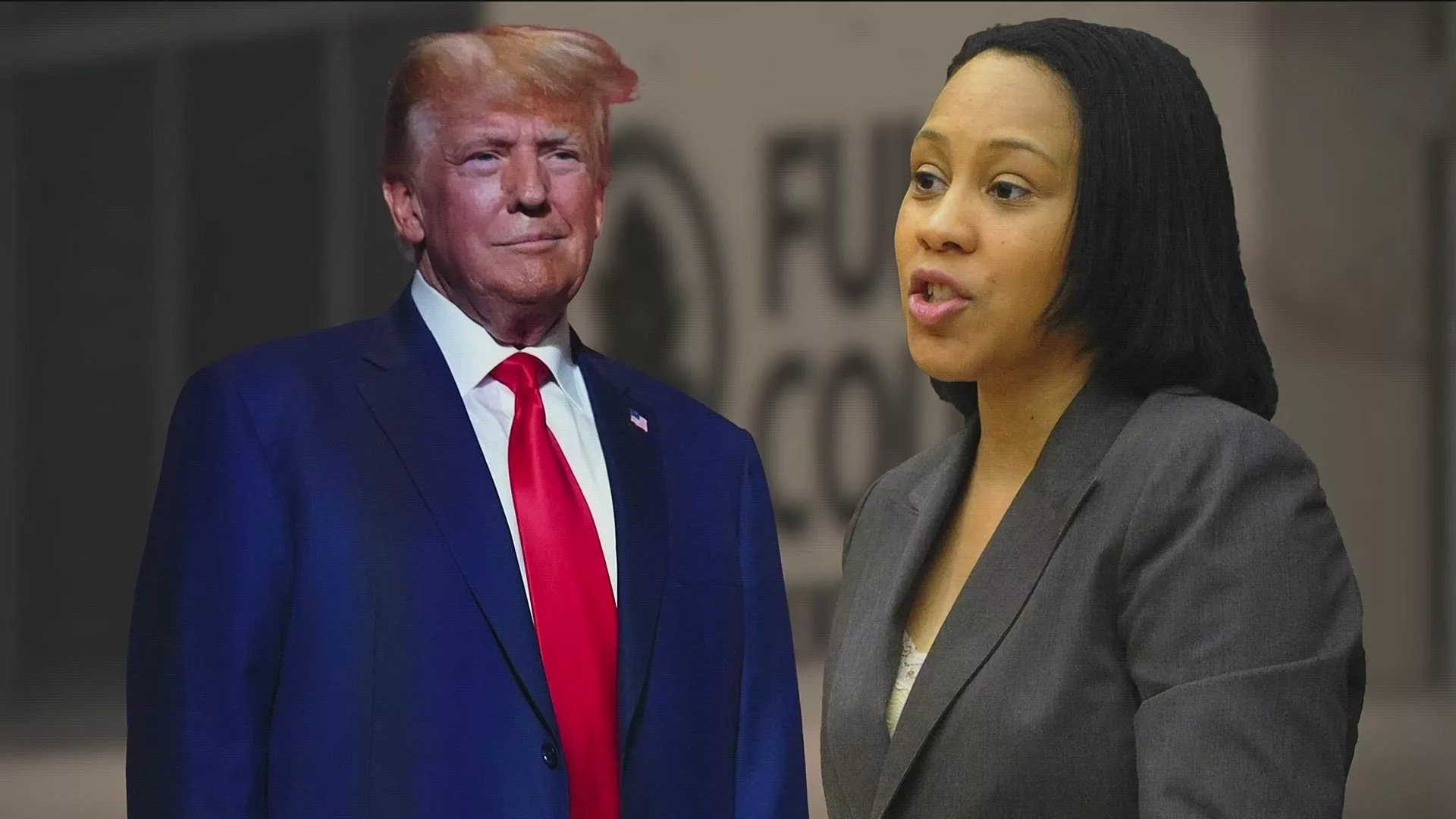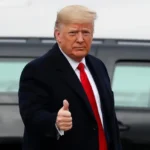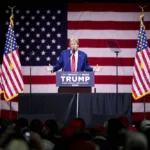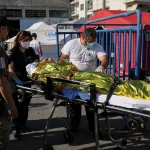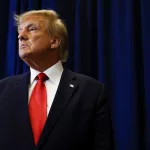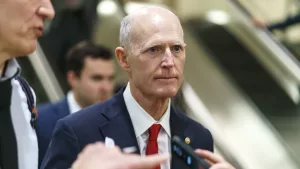In a broad attempt to rig the 2020 election by undermining Joe Biden’s victory in the state, a grand jury in Georgia has accused former President Donald Trump and 18 of his allies of racketeering.
After a two-year investigation, Fulton County District Attorney Fani Willis announced the charges on Monday night. The investigation also alleged that Trump had conspired to undermine the Electoral College, enlisted the Justice Department to support his plot, pressured Georgian officials to void the election results, and repeatedly lied about fraud allegations to increase pressure.
Willis also accused key participants in Trump’s attempt to rig the 2020 election, including former White House chief of staff Mark Meadows, attorneys Rudy Giuliani, John Eastman, Sidney Powell, Jeff Clark, Ken Chesebro, and Jenna Ellis.
The 98-page indictment details some well-known elements of Trump’s behavior in the tumultuous weeks following his loss in the November 3, 2020, election. Many of these were discussed by the House select Committee on January 6 and, more recently, in a federal indictment received by special counsel Jack Smith.
However, Willis’ indictment was astounding in its breadth and is the first to accuse Trump’s entourage of crimes for their efforts to support his campaign to retain power despite losing the election.
Thirteen of the 41 criminal counts in the indictment were levelled at Trump. The charges are based on many important elements:
- Trump’s attempt to put together phony presidential elector slates to stir up controversy and thwart the transfer of power. One of the people named in the indictment was Mike Roman, a Trump campaign associate participating in that attempt. David Shafer, the chairman of the Georgia GOP, and other participants in the effort were also charged.
- A campaign of intimidation was launched against Georgian officials in charge of certifying the presidential election by Trump, Giuliani, Eastman, and others.
- There have been reports of false claims of voter fraud in court filings, which seem to be part of Trump’s final attempt to overturn the election results in Georgia.
- Trump-supporting officials in Coffee County, Georgia, compromised critical voting equipment. One of Trump’s phony electors, Cathleen Latham, was charged with participating in this scheme.
- Ruby Freeman, an election worker who was the target of pro-Trump conspiracy theories concerning voting fraud, was the subject of a campaign of harassment and false accusations.
Willis also criticized parts of Trump’s campaign that went beyond Georgia’s boundaries, specifically Clark’s efforts to get Georgia lawmakers to rethink certifying a pro-Trump slate of electors through the distribution of a letter.
And on January 6, 2021, when Congress convened to count the Electoral College votes, she accused Trump and Eastman of arranging a pressure campaign on former Vice President Mike Pence to rescind the election single-handedly.
In his quest to retake the White House in 2024, Trump is facing four sets of criminal allegations, the fourth of which is the most extensive. Two weeks after Smith accused Trump of participating in a federal conspiracy to thwart the power transfer, an indictment has now occurred.
Numerous uncharged co-conspirators are mentioned in Willis’ charging sheet.
The indictment also refers to a notorious phone call on January 2, 2021, during which Trump demanded that Brad Raffensperger, the secretary of state for Georgia, “find” him enough votes to overturn his loss.
It contains a list of over a dozen untruths Trump said during the call, including multiple criticisms of Freeman.
Trump has criticized Fani Willis for months, claiming she is conducting a politically motivated inquiry. He has repeatedly attempted to remove her from the case, but these have failed in the courts.
On Monday, he continued criticizing the upcoming prosecution, claiming, “I didn’t tamper with the election!” And just hours before the indictment was announced, he persuaded Geoff Duncan, the former lieutenant governor of Georgia, not to go before the grand jury.
After running against her former boss, Willis, a Democrat and career prosecutor, was chosen as the district attorney in 2020. She is the first female district attorney of Georgia’s most populated county, Fulton County, which covers most of Atlanta.
As Trump prepares to run for president in 2024, the recently filed case is the latest in a long line of judicial challenges. He is facing charges from the state of New York for allegedly falsifying business records to hide an affair with a porn star, federal charges from Smith’s team in Florida for keeping top-secret military information at his Mar-a-Lago estate, and federal charges from Smith’s team in Washington, D.C. for his election scheme.
Willis’ accusations have been in the works for a while. She appointed a “special grand jury” in early 2022, taking advantage of a peculiarity in Georgia law that allows prosecutors to undertake intricate, narrowly targeted inquiries outside the purview of the regular grand jury procedure.
Even while that panel spent months rounding up some of Trump’s closest associates and allies, it lacked the authority to bring charges. Instead, to obtain Monday’s indictment, Willis presented the special grand jury’s evidence to a regular grand jury.
Eastman, Giuliani, and Chesebro were among the essential witnesses called before the special grand jury; they were all referred to in Smith’s most recent indictment as co-conspirators. Meadows, Mike Flynn, the former national security adviser for Donald Trump, and at least two Republican senators, Sen. Lindsey Graham (R-S.C.) and Rep. Jody Hice (R-Ga.), were also interviewed by Willis.
Even after the special grand jury procedure concluded in January, Willis kept looking into the case. Willis claimed in court documents that she had granted amnesty to many GOP volunteers who had impersonated genuine presidential electors at the Trump campaign’s insistence following the 2020 election.
Some of them claim that they did such actions after being told by the campaign that their actions were a backup plan if Trump was successful in any of his legal battles to have the election annulled.
In those conversations, Willis and Robert McBurney, the judge overseeing the special grand jury, made it clear that Georgia GOP Chair David Shafer was one of those false electors who had a greater criminal exposure than the other false electors.
In addition, Willis made it apparent that she was looking into the unauthorized hack of voting machines in Coffee County, Georgia, by pro-Trump investigators following the 2020 election.
In November 2020, POLITICO questioned Latham, the pro-Trump phony elector connected to that operation and was indicted on Monday, whether she saw a rationale for Trump’s electors to vote in place of Biden’s. “Bahahaha, you think I’m going to respond to you?” Latham retorted. You are ignorant of GA law. Go over the Constitution. Source


